
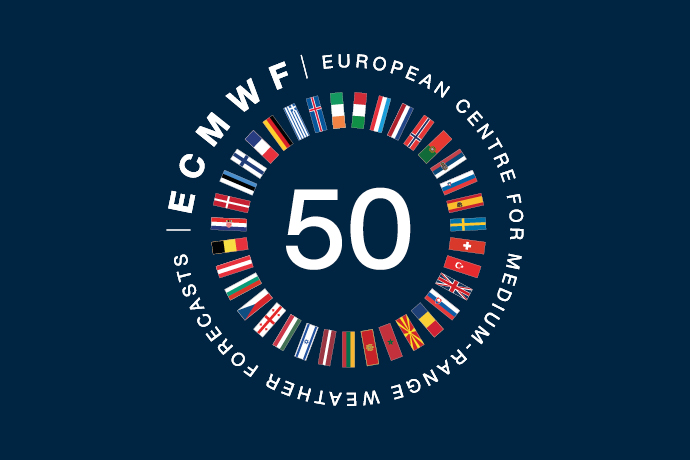
A week of events in Bonn, Germany, from 7 to 11 April 2025 to mark ECMWF’s 50th anniversary has provided tantalising insights into the present and future of weather forecasting.
The traditional Annual Seminar and four workshops attracted global participation. They provided plenty of opportunity to survey a field that is facing a lot of change, in particular from advances in machine learning.
The events were an opportunity to showcase what we have achieved over the past five decades, and particularly since opening our premises in Bonn in 2021. There was great participation from all three ECMWF locations in Reading (UK), Bologna (Italy) as well as Bonn.
The Annual Seminar was dedicated to the theme of ‘Forecasting in a changing climate’, while the other events were on data assimilation; surface process coupling and its interactions with the atmosphere; ancillary data for land surface and Earth system modelling; and the evolution of Copernicus Services at ECMWF.
At the start of the week, tributes to ECMWF were paid by the Mayor of the City of Bonn, Katya Dörner; the Director-General for Digital Connectivity at the German Federal Ministry for Digital and Transport (BMDV), Gertrud Husch; the President of the German National Meteorological Service (DWD), Sarah Jones; and ECMWF Director-General Florence Rabier.
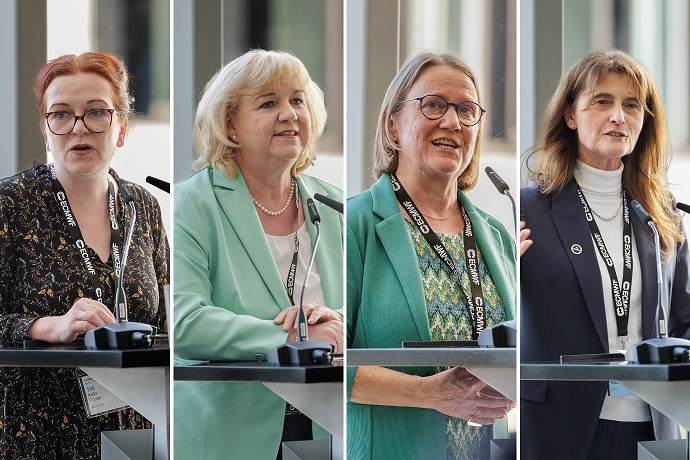
Katya Dörner, Gertrud Husch, Sarah Jones, and Florence Rabier (left to right) paid tribute to ECMWF.
The Annual Seminar
The Annual Seminar 2025, which had more than 200 participants at peak times, stretched over the week and comprised 47 presentations covering all areas of weather forecasting.
The seminar is part of ECMWF's educational programme and was aimed at early career scientists as well as more established scientists.
A particular focus was on the fact that increasingly predictions can no longer be formulated under the assumption of a stationary climate. Recent developments in machine learning were also presented.
A series of poster sessions was held, and a panel discussion concluded the event.
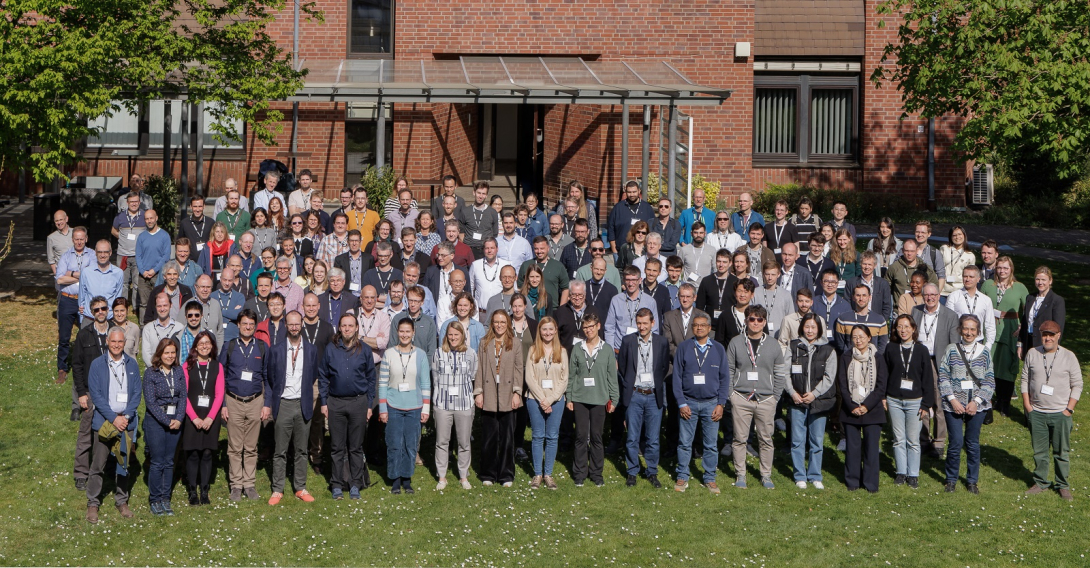
Workshop on data assimilation
The workshop on ‘Data Assimilation: Initial Conditions and beyond’ took place on 9 and 10 April. It involved 23 presentations and had 88 participants.
Data assimilation (DA) blends observations and model information to provide the best possible estimate of the current state of the Earth system at the start of forecasts.
The workshop reviewed the current status of operational Earth system DA systems and prospects for improvements. On the second day, it paid particular attention to the growing role of machine learning and the way machine learning technologies can be incorporated into the DA workflow to improve the effectiveness and efficiency of current practices.
There were poster presentations on both themes, and a panel discussion was held at the end of the second day.
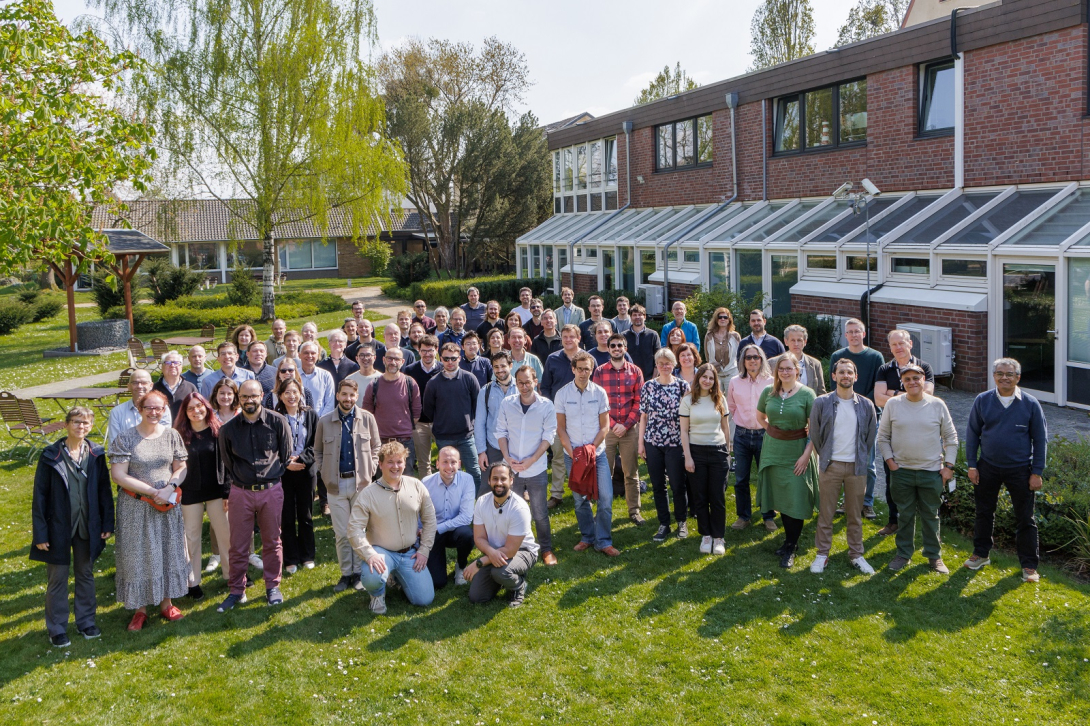
Workshop on surface process coupling and its interactions with the atmosphere
This event took place on 9 and 10 April with 20 presentations, a dedicated poster session, and 61 participants.
It considered the representation of coupled processes to improve interactions between the ocean, waves, sea ice, the land surface and the atmosphere in physical and data-driven models.
Key outcomes from the discussion were: the challenge of conservation of energy and mass across model components; assessing coupling choices and methods; the value of understanding model performance using observational campaigns focused on surface processes; and learning from the different modelling communities.
There was plenty of time for discussions and interdisciplinary breakout groups.
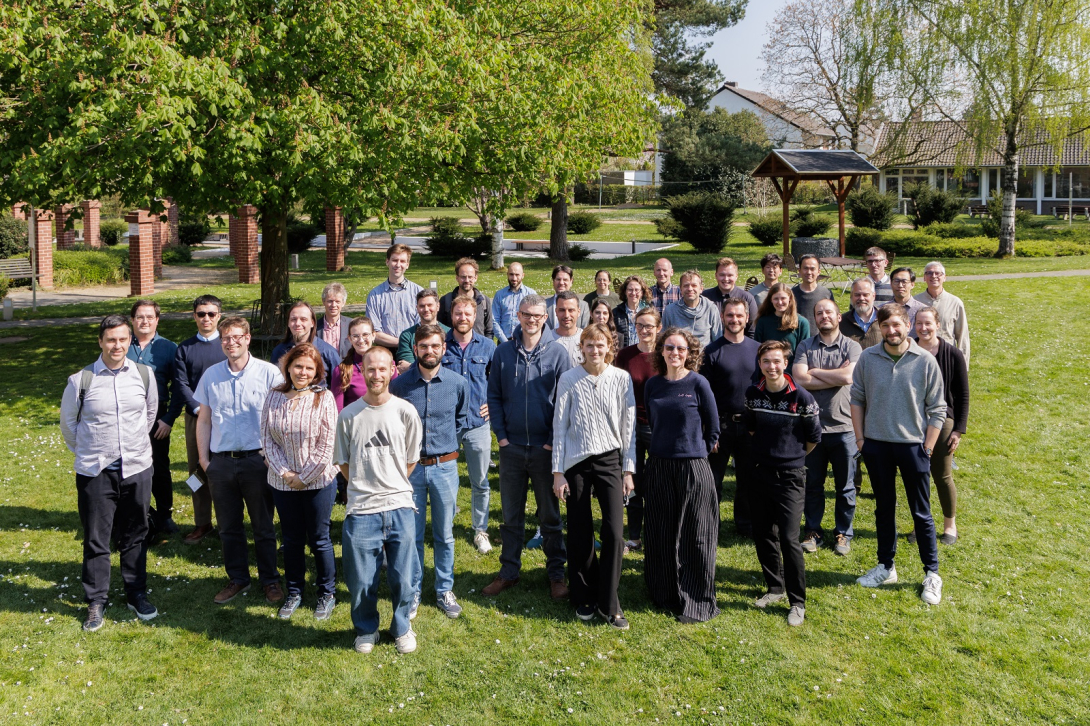
Workshop on ancillary data for land surface and Earth system modelling
This event took place on 9 and 10 April. Its science programme was co-organised with land surface scientists from the UK Met Office. It involved 13 presentations plus a series of breakout sessions among 35 in-person and 18 online participants.
The workshop discussed the need for a new generation of ancillary data used to constrain land surface models and related parameters, and it formulated basic requirements around data to be provided by data providers. It focused on the current status and future perspectives, from modelling needs to data provider requirements.
Machine learning is playing a growing role by providing new possibilities to improve these datasets. The workshop also included a poster session.
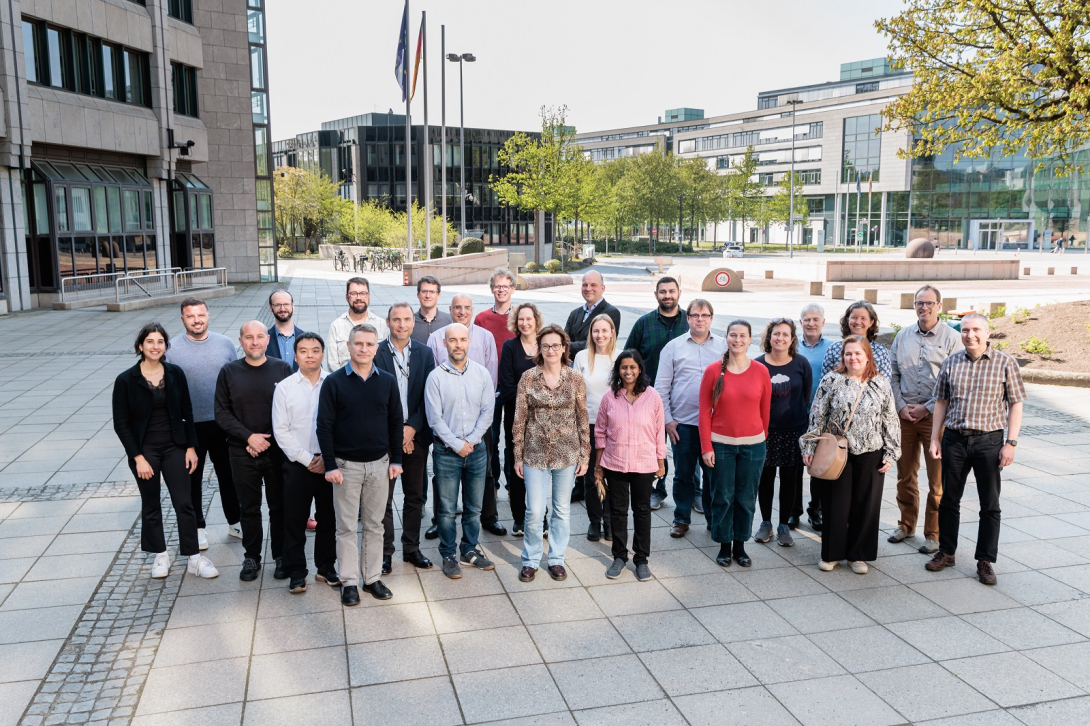
The evolution of Copernicus Services at ECMWF
The event on ‘The evolution of Copernicus Services at ECMWF: challenges and opportunities’ took place on 8 and 9 April.
It was organised by the two Copernicus Services ECMWF is implementing on behalf of the European Commission (EC): the Copernicus Climate Change Service (C3S) and the Copernicus Atmosphere Monitoring Service (CAMS).
The presence of representatives of the European Commission and our Member States enabled in-depth discussions about both the opportunities offered by the services and their future evolution. The strong engagement of the Member States was a great illustration of the positive role played by Copernicus in Europe.
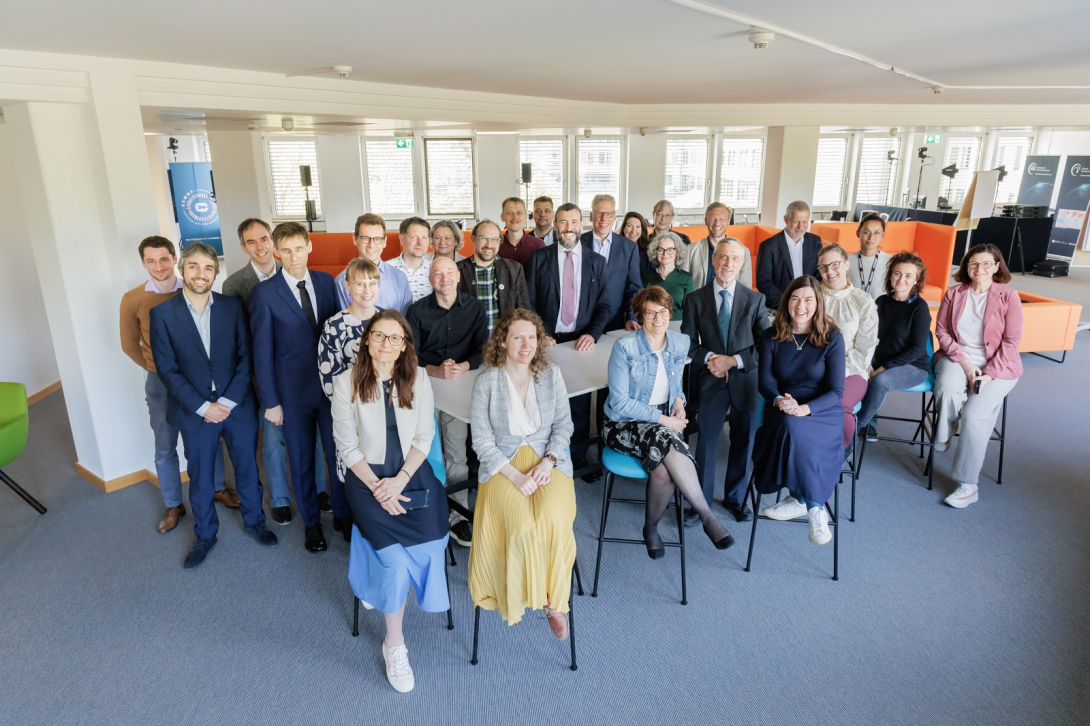
Future anniversary events
Another week of events to mark ECMWF’s 50th anniversary is planned for 15 to 19 September 2025 in Bologna, Italy, and a third week of events will take place from 1 to 5 December 2025 at ECMWF’s headquarters in Reading, UK.
More information can be found on ECMWF’s 50th anniversary page on our website.
